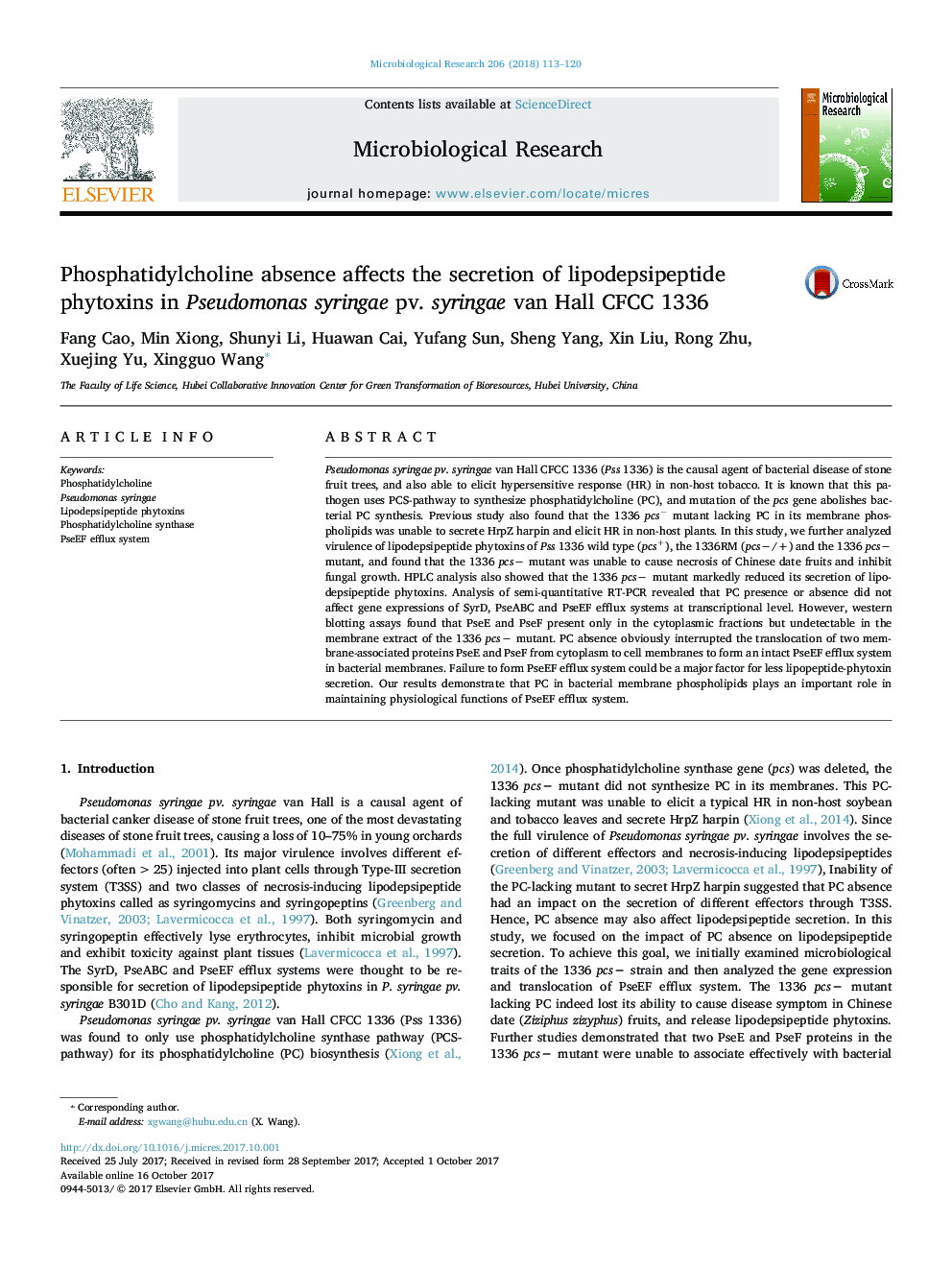| Article ID | Journal | Published Year | Pages | File Type |
|---|---|---|---|---|
| 5522428 | Microbiological Research | 2018 | 8 Pages |
Pseudomonas syringae pv. syringae van Hall CFCC 1336 (Pss 1336) is the causal agent of bacterial disease of stone fruit trees, and also able to elicit hypersensitive response (HR) in non-host tobacco. It is known that this pathogen uses PCS-pathway to synthesize phosphatidylcholine (PC), and mutation of the pcs gene abolishes bacterial PC synthesis. Previous study also found that the 1336 pcsâ mutant lacking PC in its membrane phospholipids was unable to secrete HrpZ harpin and elicit HR in non-host plants. In this study, we further analyzed virulence of lipodepsipeptide phytoxins of Pss 1336 wild type (pcs+), the 1336RM (pcsâ/+) and the 1336 pcsâ mutant, and found that the 1336 pcsâ mutant was unable to cause necrosis of Chinese date fruits and inhibit fungal growth. HPLC analysis also showed that the 1336 pcsâ mutant markedly reduced its secretion of lipodepsipeptide phytoxins. Analysis of semi-quantitative RT-PCR revealed that PC presence or absence did not affect gene expressions of SyrD, PseABC and PseEF efflux systems at transcriptional level. However, western blotting assays found that PseE and PseF present only in the cytoplasmic fractions but undetectable in the membrane extract of the 1336 pcsâ mutant. PC absence obviously interrupted the translocation of two membrane-associated proteins PseE and PseF from cytoplasm to cell membranes to form an intact PseEF efflux system in bacterial membranes. Failure to form PseEF efflux system could be a major factor for less lipopeptide-phytoxin secretion. Our results demonstrate that PC in bacterial membrane phospholipids plays an important role in maintaining physiological functions of PseEF efflux system.
